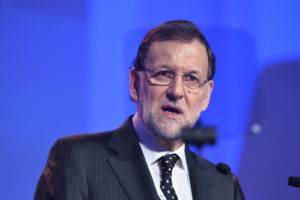Spain Forms New Government
Mariano Rajoy was elected prime minster by a parliamentary vote on October 29 in a move that officially ends nearly a year of political deadlock in Spain.

Rajoy, a member of the conservative People’s Party, previously served as the caretaker prime minister in Spain after he was unable to secure the parliamentary majority necessary to form a government. While most of Rajoy’s opposition came from the Spanish Socialist Party (PSOE), Rajoy was able to secure his majority only after the Socialists ceded power to the Conservatives on October 23. This move came after Pedro Sanchez, a former leader of PSOE, stepped down in early October after nearly half of his party members resigned in protest. PSOE’s ceding of power eventually cleared the way for Spain’s parliament to call for the October 29 vote which resulted in Rajoy’s reelection.
The support of minority parties in Spain also helped Rajoy secure the votes necessary to form a minority party rule, with no other group claiming a majority. Other smaller parties in Spain’s multipolar political system, such as the center-right Citizen’s Party, either abstained or voted in support of Rajoy. This decision comes after months of secret party alliances and vote-scrounging that one Spaniard likened to a political “Game of Thrones” in an interview with The Caravel on September 26.
Although most Spaniards are celebrating the end of the political deadlock, many share the opinion of interim head of PSOE, Javier Fernández, that Rajoy is the “lesser of two evils,” with the alternative being that the country has to hold its third general election in one year. Even Rajoy himself took to Twitter to profess that he is “conscious of the difficulties” surrounding his leadership, but that he accepted the role because “Spain needs a government.”
With the EU pressuring Spain to form a fully-functioning government and with unemployment still hovering at around 20 percent among adults and 40 percent among youths, Rajoy’s government seems to many to be a reluctant yet positive option.
